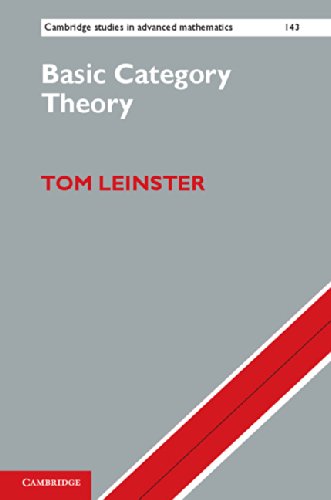
Basic Category Theory
by Tom Leinster
Publisher: arXiv 2016
ISBN/ASIN: 1107044243
Number of pages: 191
Description:
This short introduction to category theory is for readers with relatively little mathematical background. At its heart is the concept of a universal property, important throughout mathematics. For each new categorical concept, a generous supply of examples is provided, taken from different parts of mathematics.
Download or read it online for free here:
Download link
(1.3MB, PDF)
Similar books
 Higher-Dimensional Categories: an illustrated guide book
Higher-Dimensional Categories: an illustrated guide bookby Eugenia Cheng, Aaron Lauda - University of Sheffield
This work gives an explanatory introduction to various definitions of higher-dimensional category. The emphasis is on ideas rather than formalities; the aim is to shed light on the formalities by emphasizing the intuitions that lead there.
(13953 views)
 Banach Modules and Functors on Categories of Banach Spaces
Banach Modules and Functors on Categories of Banach Spacesby J. Cigler, V. Losert, P.W. Michor - Marcel Dekker Inc
This book is the final outgrowth of a sequence of seminars about functors on categories of Banach spaces (held 1971 - 1975) and several doctoral dissertations. It has been written for readers with a general background in functional analysis.
(11119 views)
 Basic Concepts of Enriched Category Theory
Basic Concepts of Enriched Category Theoryby Max Kelly - Cambridge University Press
The book presents a selfcontained account of basic category theory, assuming as prior knowledge only the most elementary categorical concepts. It is designed to supply a connected account of the theory, or at least of a substantial part of it.
(13921 views)
 Higher Operads, Higher Categories
Higher Operads, Higher Categoriesby Tom Leinster - arXiv
Higher-dimensional category theory is the study of n-categories, operads, braided monoidal categories, and other such exotic structures. It draws its inspiration from topology, quantum algebra, mathematical physics, logic, and computer science.
(13114 views)